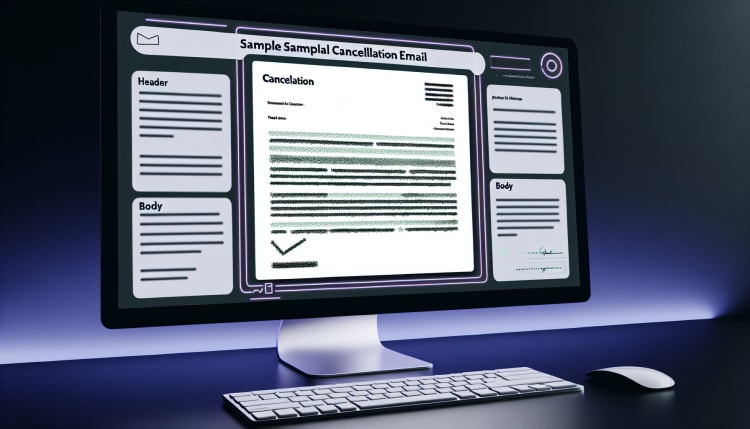In the realm of remote working, the ability to navigate the waters of meeting cancellations with grace and professionalism is an invaluable skill. Whether you’re using a virtual office platform like Kumospace or another digital workspace, understanding the art of canceling meetings and handling cancelation situations can help maintain productivity, preserve relationships, and uphold a positive work culture.
Key takeaways
- Ensure timely, respectful meeting cancellations by providing ample notice, choosing effective communication methods, and maintaining professional relationships.
- Compose a clear, succinct cancellation message with a direct subject line, structured content, and a respectful tone that includes a concise reason for the cancellation and an apology for any inconvenience.
- Utilize cancellations as opportunities to reschedule, explore alternative collaboration methods, and follow up post-cancellation to confirm understanding and offer needed assistance.
The essentials of meeting cancellation

Three integral components of graceful meeting cancellations include appropriate timing, effective communication channels, and the preservation of professional relationships. These components work collectively to streamline the cancellation process, mitigate disruption, and uphold mutual respect among all participants.
Timing your cancellation right
Timing holds paramount importance in the process of canceling meetings. Providing ample notice is key to enabling attendees to alter their schedules accordingly. Regardless of the reason - be it scheduling conflicts, insufficient preparation, or personal emergencies - prompt and respectful action, with due consideration for others’ time, is of utmost importance.
Choosing the appropriate communication channel
Your chosen method of communication for announcing the meeting cancellation greatly influences the perception of your message. Depending on the situation, varying approaches may be needed - a phone call for last-minute cancellations, an email for notifying a group, or a personal conversation for a more individualized touch.
Preserving professional relationships
Meeting cancellations do not necessarily lead to the deterioration of professional relationships. Maintaining a positive image and fostering understanding is possible through clear explanation of cancellation reasons, acknowledgement of any inconvenience caused, and demonstrating respect for others’ schedules.
A sincere apology goes a long way in preserving professional relationships.
Crafting your cancellation message

After determining the appropriate timing and communication method, the next step is to compose your cancellation message. The message, ideally, should be clear, succinct, and respectful, making sure the recipient comprehends the reason for the cancellation and any subsequent actions, such as rescheduling.
Composing a clear subject line
The subject line of your cancellation email, being the initial point of contact, must be impactful. It should clearly convey the purpose of your email while also grabbing attention. Here are a few examples: ‘URGENT: Meeting Cancelled - Action Required’ or ‘Change of Plans: Meeting Cancelled’.
Structuring the content
The cancellation message should be strategically structured to guarantee clarity and brevity. Here is a suggested structure:
- Begin with a professional opening.
- Follow with a concise explanation for the cancellation.
- Propose rescheduling if applicable.
- Conclude with an apology for any inconvenience caused.
Sample cancellation email: A template for users

To assist in streamlining the meeting cancellation process, here are some adaptable meeting cancellation email sample templates for various scenarios. These templates are designed to be engaging and effective, ensuring clear and professional communication.
Personal or family emergency
In case of a personal or family emergency, honesty and directness in communication are key. Your email should convey your regret for the cancellation, provide a brief explanation of the emergency, and express your willingness to reschedule the meeting at a more convenient time.
Unforeseen scheduling conflict
Unpredictable scheduling conflicts may occur, necessitating the need to cancel meetings. In such cases, when you need to cancel a meeting, sending a meeting cancellation notice, such as meeting cancellation emails, should clearly state the conflict, apologize for the inconvenience, and propose alternative dates for rescheduling the meeting.
Lack of meeting agenda or preparation
A meeting without a clear agenda, adequate preparation, or proper meeting notes may need to be postponed. Your cancellation email should include the following information:
- Explain the reason for the postponement.
- Assure attendees that a detailed agenda will be provided before the rescheduled meeting.
- Propose new dates for the meeting.
Rescheduling tactics: turning cancellations into opportunities

Meeting cancellations need not be perceived as setbacks. Rather, they can be viewed as opportunities for:
- Rescheduling
- Trying out different collaboration strategies
- Recommending new dates
- Employing tools such as Kumospace’s virtual office platform
These actions can transform cancellations into enhanced collaboration opportunities.
Proposing new dates
When you suggest alternative dates for rescheduling, it demonstrates your dedication to the meeting’s objectives and your respect for the time of the attendees. It’s essential to be considerate of everyone’s schedules and time zones, particularly in a virtual office environment where attendees may be located around the globe.
Alternative collaboration methods
Different collaboration strategies, like asynchronous video updates, serve as efficient avenues for sharing information or progress updates without the need for a full meeting. Virtual office platforms like Kumospace make it easy to share these updates, keeping everyone informed and engaged.
The aftermath: following up post-cancellation

Post-cancellation follow-ups are critical for upholding professionalism and clarity. This includes confirming that all attendees have received and understood the cancellation notice and offering any necessary assistance or resources.
Confirming receipt and understanding
Confirmation of receipt and comprehension of a meeting cancellation is of high importance. This can be achieved by requesting a confirmation of receipt in your cancellation email and following up with attendees to address any questions or concerns they may have.
Offering assistance and resources
Providing support and resources to meeting participants aids their adjustment to the meeting cancellation and helps sustain their productivity. This could include:
Maintaining etiquette in virtual office environments

Upholding etiquette in virtual office settings, especially regarding meeting cancellations, is of paramount importance. This includes cultivating a culture of respect and keeping engagement high, which are key to fostering a positive and productive virtual work environment.
Cultivating a culture of respect
Creating a respectful culture in a virtual office setting involves:
- Nurturing a professional and respectful environment
- Being courteous and considerate when canceling meetings
- Maintaining a positive and professional demeanor in all interactions
Keeping engagement high
Sustaining high engagement levels in a virtual office setting can be realized through the effective use of virtual office platform features, such as those of Kumospace. These platforms facilitate team collaboration and connection, fostering a sense of community and engagement even in a remote work setting.
Summary
In conclusion, mastering the art of meeting cancellations is a vital skill in today’s digital workplace. By understanding the essentials, crafting a clear and concise cancellation message, and following up effectively, you can turn cancellations into opportunities for better collaboration and productivity.
Frequently Asked Questions
The best way to cancel a meeting is to provide ample notice, select the right communication method, and show professionalism and respect towards all participants. This ensures a smooth cancellation process and maintains good relations.
After canceling a meeting, it's important to follow up to confirm receipt and understanding of the cancellation, and offer any necessary assistance or resources to ensure a smooth transition. This will help in maintaining good communication and relationships with the involved parties.
When canceling a meeting in a virtual office environment, remember to be courteous and considerate to foster respect and maintain engagement.





